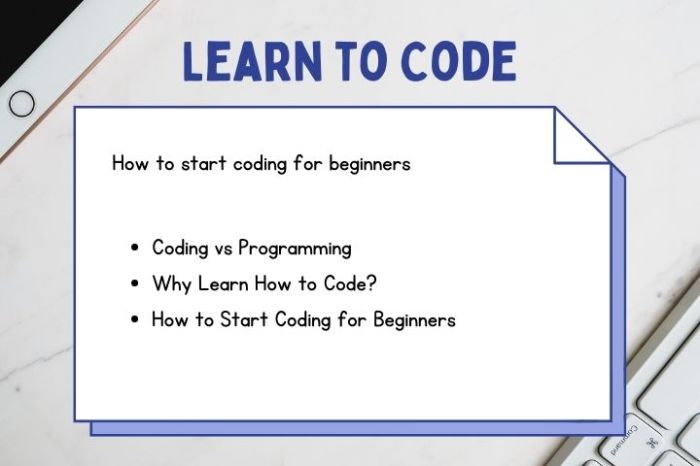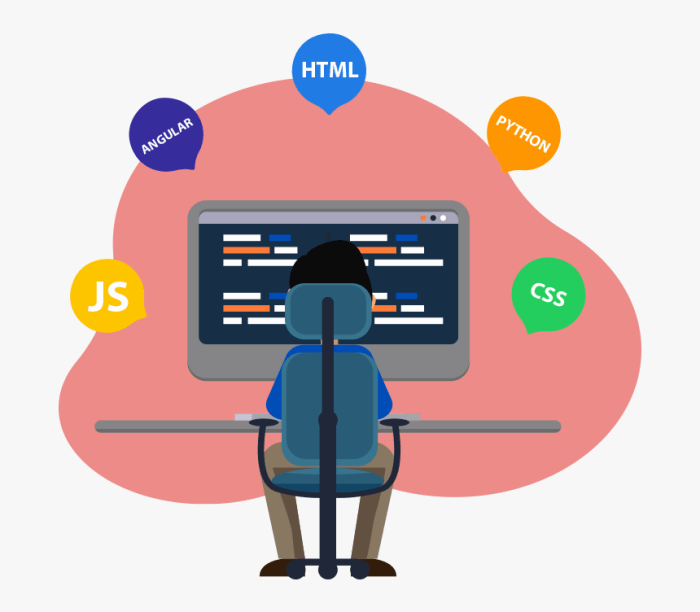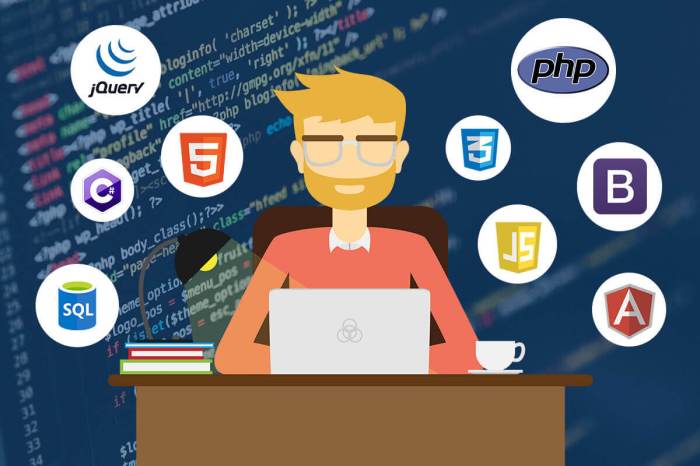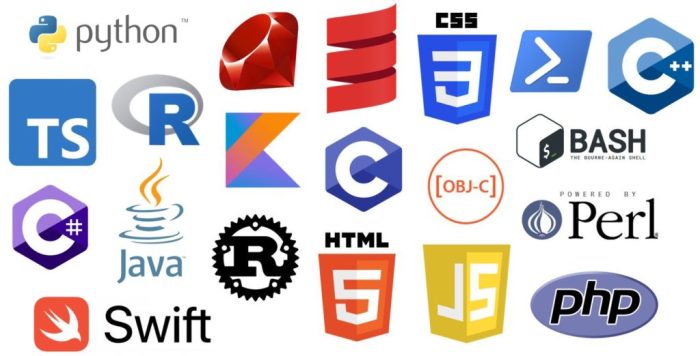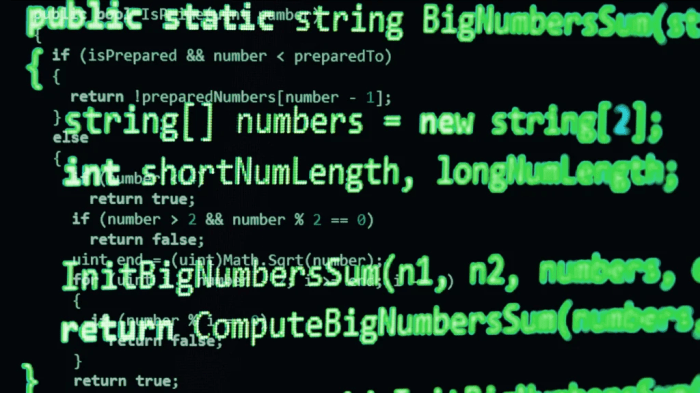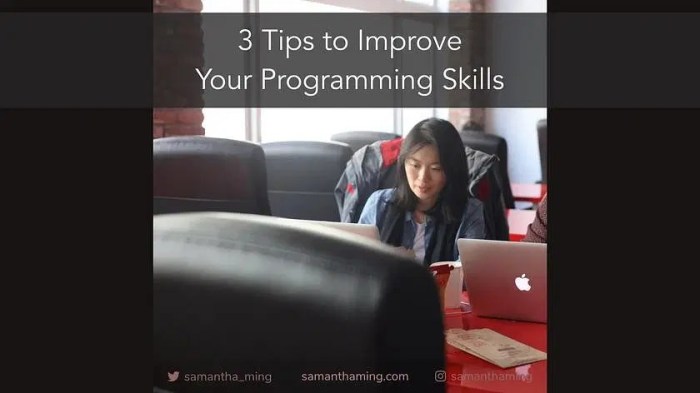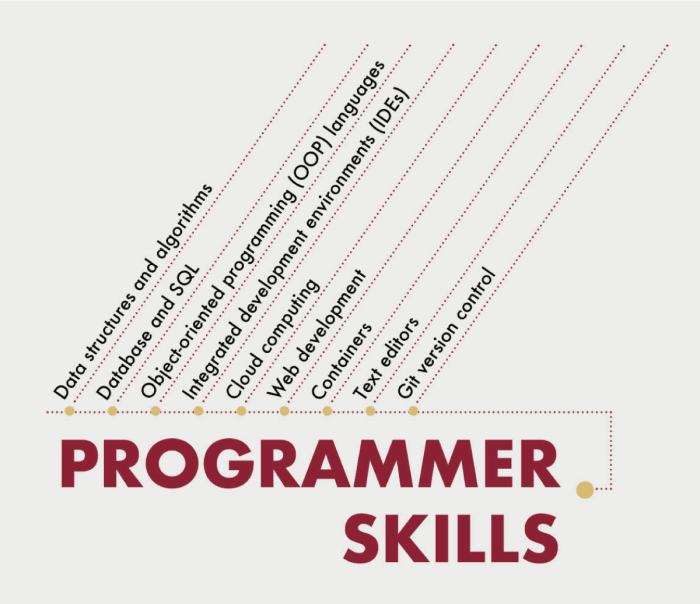
Are you ready to dive into the future of programming? Best programming languages to learn in 2025 sets the stage for an exciting journey into the world of coding. Get ready to explore the trends, innovations, and must-know languages that will shape the tech landscape in the coming years.
From cutting-edge languages to specialized tools, this guide will equip you with the knowledge you need to thrive in the ever-evolving world of programming.
Best programming languages to learn in 2025

With the rapidly evolving tech landscape, certain programming languages are predicted to be in high demand in 2025. These languages are expected to play a crucial role in various industries and sectors, making them essential skills for aspiring developers.
Python
Python has been gaining immense popularity over the past few years due to its simplicity, versatility, and strong community support. It is widely used in data science, machine learning, web development, and automation, making it a valuable language to learn in 2025.
JavaScript
JavaScript continues to be a dominant language in web development and is essential for building interactive and dynamic websites. With the rise of technologies like Node.js and React, JavaScript is expected to maintain its relevance in 2025.
Java
Java has been a mainstay in the programming world for years and is used in a wide range of applications, from mobile apps to enterprise systems. Its stability, portability, and scalability make it a solid choice for developers looking to expand their skill set in 2025.
C#
C# is commonly used for building Windows applications, games, and enterprise software. With the growth of the gaming industry and the popularity of the .NET framework, C# is projected to be in demand in 2025.
Emerging programming languages
In the ever-evolving tech industry, new programming languages are constantly emerging, offering developers innovative tools to create cutting-edge applications. Learning these emerging languages early on can provide aspiring developers with a competitive edge in the job market and open up exciting career opportunities.
Rust
Rust is a systems programming language developed by Mozilla that focuses on performance, safety, and concurrency. It is increasingly being utilized in real-world applications such as game development, operating systems, and web services. Rust’s strict compiler helps prevent common bugs and memory errors, making it a favorite among developers looking for reliability and efficiency.
Kotlin
Kotlin is a modern programming language that runs on the Java Virtual Machine (JVM) and is fully interoperable with Java. It is gaining popularity for Android app development due to its concise syntax, improved type safety, and null safety features. Many companies, including Google, have adopted Kotlin for their Android projects, making it a valuable skill for mobile developers.
Julia
Julia is a high-level, high-performance language designed for numerical and scientific computing. With its speed and ease of use, Julia is becoming a go-to language for data scientists, researchers, and engineers working on complex computational tasks. Its ability to seamlessly integrate with existing code and libraries makes it a versatile choice for various industries.
Crystal
Crystal is a statically typed, compiled language with Ruby-like syntax that emphasizes developer productivity and performance. It is gaining traction in web development, networking, and automation tasks due to its fast execution speeds and low memory usage. Crystal’s growing community and ecosystem are making it an attractive option for developers seeking a modern and efficient language.
Cross-platform languages
Cross-platform languages are programming languages that can be used across different platforms seamlessly, making them versatile tools for developers and businesses alike. By learning cross-platform languages, developers can write code once and deploy it on multiple platforms, saving time and effort in adapting code for different operating systems or devices.One of the key benefits of learning cross-platform languages is the ability to reach a wider audience with your software or application.
Instead of limiting your product to a specific platform, you can make it accessible to users on various devices, increasing its potential impact and user base.Furthermore, cross-platform languages offer flexibility and efficiency in development, as developers can work on one codebase for multiple platforms, streamlining the development process and reducing the likelihood of errors or inconsistencies. This can result in faster time-to-market for products and cost savings for businesses.In comparison to traditional languages that are platform-specific, cross-platform languages provide a more efficient and cost-effective solution for developing software that can run on different operating systems and devices.
The performance and flexibility of cross-platform languages make them a valuable asset for developers looking to create versatile and scalable applications in the ever-evolving tech landscape.
Versatility and Adaptability
- Cross-platform languages like Java, Python, and JavaScript allow developers to write code that can be executed on various platforms without major modifications.
- These languages support interoperability and compatibility across different systems, enabling seamless integration and deployment.
- Developers can leverage the power of cross-platform languages to create robust and high-performing applications that can reach a broader audience.
Efficiency and Cost Savings
- By using cross-platform languages, developers can reduce development time and costs associated with creating separate codebases for different platforms.
- Businesses can benefit from the efficiency of cross-platform languages by accelerating the development cycle and improving time-to-market for products.
- The flexibility of cross-platform languages allows for easier maintenance and updates across multiple platforms, enhancing the overall user experience.
Specialized languages for niche industries
In today’s technology-driven world, specialized programming languages tailored for niche industries have become increasingly important. These languages are designed to meet the unique demands and challenges of specific sectors such as AI, IoT, and blockchain, allowing developers to create innovative solutions and drive advancements in these industries.
Artificial Intelligence (AI)
Artificial Intelligence is revolutionizing various industries, and specialized programming languages play a crucial role in developing AI applications. Languages like Python, R, and Java are commonly used for AI projects due to their robust libraries and frameworks that support machine learning and deep learning algorithms. For instance, Python’s TensorFlow and PyTorch libraries are widely used for building AI models, while R is preferred for statistical analysis and data visualization in AI research.
Internet of Things (IoT)
IoT is another rapidly growing industry that relies on specialized programming languages to enable seamless connectivity between devices. Languages like C, C++, and Java are popular choices for IoT development due to their efficiency in handling low-level hardware interactions and network communication. These languages are essential for creating IoT applications that require real-time data processing and efficient resource management.
Blockchain Technology
Blockchain technology has gained significant traction in industries like finance, supply chain, and healthcare, offering secure and transparent data transactions. Specialized languages like Solidity, C++, and JavaScript are used for developing blockchain applications and smart contracts. Solidity, specifically designed for Ethereum blockchain, enables developers to create decentralized applications (dApps) and execute smart contracts securely on the blockchain network.
Evolution of programming languages
In the world of computer programming, languages have evolved significantly over the years, adapting to the changing needs of developers and technology advancements. Let’s take a look at the journey of programming languages from their early days to the present.
Early Days of Computing
Programming languages have come a long way since the early days of computing when machine language and assembly language were the primary methods of writing programs. These languages were complex and required a deep understanding of the hardware architecture.
- Machine language consisted of binary code that directly communicated with the computer’s hardware.
- Assembly language provided a more human-readable format by using mnemonics to represent machine instructions.
Key Milestones and Breakthroughs
Over time, key milestones and breakthroughs have shaped the landscape of programming languages, making them more accessible and powerful for developers.
- The development of high-level languages such as Fortran, COBOL, and Lisp in the 1950s and 1960s revolutionized programming by introducing more English-like syntax and higher levels of abstraction.
- The creation of C programming language by Dennis Ritchie in the 1970s laid the foundation for modern programming languages with its focus on efficiency and portability.
- The emergence of object-oriented programming languages like C++ and Java in the 1980s and 1990s introduced concepts like classes and inheritance, leading to more modular and scalable code.
Influence on Modern Languages
Modern programming languages have been influenced by their predecessors, incorporating features and concepts from earlier languages to improve upon them and meet the demands of contemporary software development.
- Languages like Python and Ruby have drawn inspiration from the simplicity and readability of languages like Lisp and Smalltalk.
- Functional programming languages such as Haskell and Scala have roots in languages like Lisp and ML, emphasizing immutability and higher-order functions.
Programming paradigms
In the world of programming, different paradigms provide unique approaches to problem-solving and code organization. Understanding these paradigms can make developers more versatile and efficient in their work.
Procedural programming
Procedural programming focuses on writing code in a step-by-step manner, following a sequence of instructions. It emphasizes procedures or functions that perform specific tasks.
- Strengths:
- Easy to understand and implement for beginners.
- Efficient for small to medium-sized projects.
- Weaknesses:
- Code reusability can be limited.
- Not as scalable or maintainable for large projects.
Object-oriented programming
Object-oriented programming (OOP) revolves around creating classes and objects to model real-world entities. It promotes concepts like inheritance, encapsulation, and polymorphism.
- Strengths:
- Encourages code reusability through inheritance.
- Scalable and maintainable for complex projects.
- Weaknesses:
- Can be complex for beginners to grasp initially.
- Overuse of inheritance can lead to tight coupling.
Functional programming
Functional programming treats computation as the evaluation of mathematical functions. It focuses on immutability and avoiding side effects.
- Strengths:
- Promotes code scalability and maintainability.
- Emphasizes pure functions, leading to less error-prone code.
- Weaknesses:
- Steep learning curve for developers transitioning from OOP.
- Not as intuitive for certain types of problem-solving.
Closing Summary
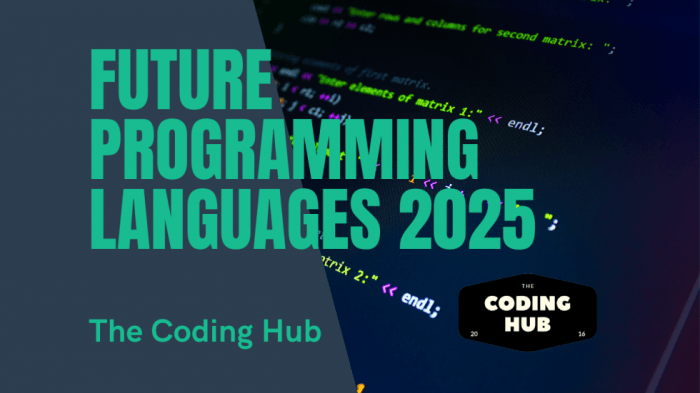
As we wrap up our exploration of the best programming languages to learn in 2025, remember to stay curious, adaptable, and eager to learn. The future of coding is bright, and with the right skills in your arsenal, you’ll be ready to tackle any challenge that comes your way.
Essential FAQs
Which programming languages are predicted to be in demand in 2025?
Python, JavaScript, and Rust are among the top picks for 2025 due to their versatility and growing popularity.
Why is it important to learn cross-platform languages?
Cross-platform languages offer developers the flexibility to create applications that can run on multiple devices and operating systems seamlessly, making them highly valuable in today’s tech landscape.
What are some examples of specialized languages for niche industries?
Languages like R for data science, Solidity for blockchain development, and Swift for iOS app development are tailored for specific industries and offer unique advantages to developers.

